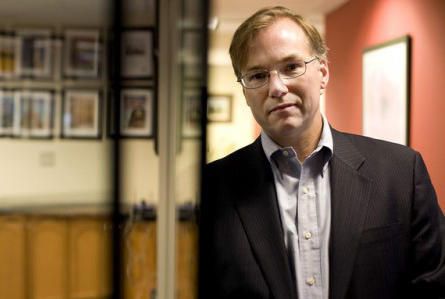Steve Coll, a staff writer for the New Yorker and a two-time recipient of the Pulitzer Prize, has been named dean of the Graduate School of Journalism. He will succeed Nicholas Lemann on July 1.
“Steve Coll is one of the most experienced and respected journalists of his generation,” said President Lee C. Bollinger in a statement.
Coll is a former managing editor of the Washington Post and past president of the New America Foundation. He won a Pulitzer in 1990 for reporting on the Securities and Exchange Commission, and in 2005 for his book Ghost Wars: The Secret History of the CIA, Afghanistan, and Bin Laden, from the Soviet Invasion to September 10, 2001. He has written six other books.
Coll takes over a school that has been substantially rethought and modernized over the past decade, a period that saw the near collapse of the traditional model for news coverage and delivery. “One of the things that Columbia and Nick Lemann did so well was to strike a voice that was confident about the enduring values and role of journalism at a time when there was so much disruption in the confidence of newspapers and broadcasters,” says Coll. “The University’s commitment to depth, ethics, and accountability in journalism has proven itself as a basis to tackle the big changes and what they mean for students and for the school.”
In the age of social media and smartphones, the journalism school and the profession are wrestling with the very question of who is a journalist. “That technology,” says Coll, “has made everyone a witness, everyone a source. It has democratized access to the public square. I think that is fundamentally good for our democracy, but that is not the same thing as professional journalism. One of the challenges professional journalism faces is how to adapt its own values, practices, and skills.”
Coll sees an expanded role for the J-school in the University’s global and digital growth. “Because the school has to grapple with how the digital revolution has changed the practice of professional journalism and the business models that surround it,” he says, “we will be in a position to help Columbia think about how digital disruptions may create new opportunities in the classroom as well, which is a big subject in higher education these days.”



